Serving Customers Worldwide
For over 40 years we have provided watermakers to customers around the world. If you're looking for a reliable and efficient way to produce clean, fresh drinking water anywhere if the world, then our watermakers are the perfect solution to meed your needs. At Watermakers, Inc. we use advanced reverse osmosis technology to turn saltwater into freshwater easily. They are designed and customized for Marine, Land and Commercial use providing safe & accessible water solutions. Not only do our watermakers provide an easy solution for producing fresh water, but they also help reduce waste by eliminating plastic bottles that would otherwise have been used for storing bottled water. If you are looking for an effective way of providing clean water no matter where you are, look no further than our quality range of customized watermakers from Watermakers, Inc.
United States
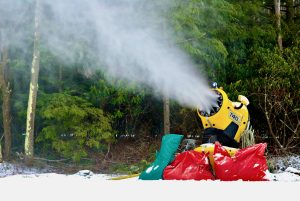
Watermakers in the United States play a vital role in many industries, from snowmaking to agriculture. They are essential for providing clean, safe water for various activities and processes. Water makers help ensure reliable access to high-quality water sources from small-scale operations to large-scale enterprises. With their ability to filter out contaminants and other particulates, these devices provide an invaluable resource for businesses and homes. As demand continues to grow, we must understand the importance of investing in reliable water makers to continue using this valuable resource.
Mexico
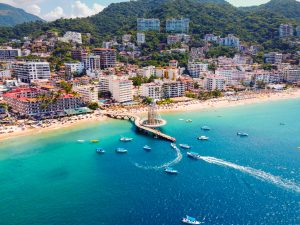
In Mexico, access to clean water is a major challenge. The country is facing an ongoing water crisis due to population growth and climate change, resulting in limited resources for agriculture and other essential uses. Watermakers are becoming increasingly important in addressing this issue, as they provide solutions for producing potable water from saltwater sources or contaminated groundwater. With the help of these technologies, Mexico can increase its access to clean drinking water while also improving agricultural production by providing better irrigation systems.
Guatemala
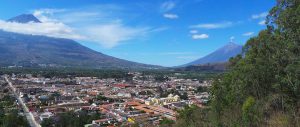
Guatemala is a beautiful Central American country known for its volcanoes, rainforests, and ancient Mayan sites. But despite the natural beauty of Guatemala, many rural communities still struggle with access to clean water. Water scarcity in agriculture has been identified as one of the main issues Guatemalan farmers and their families face. Watermakers Guatemala was founded to address this issue and to provide sustainable methods of harvesting freshwater from the air through condensation technology. By using innovative atmospheric water generators (AWG) devices that collect moisture from the atmosphere and convert it into safe drinking water, they are helping these communities find relief from drought conditions while promoting economic development in rural areas. With Watermakers Guatemala's help, local farmers can access clean drinking water when other sources are scarce or unavailable.
Colombia
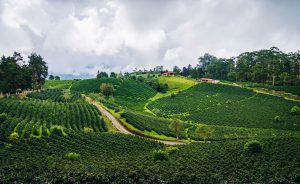
Watermakers in Colombia are essential to the country's economy and livelihood. As a tropical country, Colombia is prone to drought water shortages, making access to drinking water a challenge for many communities. This has put pressure on Colombian farmers (think coffee) who rely heavily on irrigation for their crops and families who need enough water for everyday activities. Fortunately, innovative solutions like watermakers have emerged as possible solutions to this problem. Watermakers provide an efficient way of providing clean drinking water while conserving resources by recycling wastewater from other sources such as rivers or lakes.
Panama
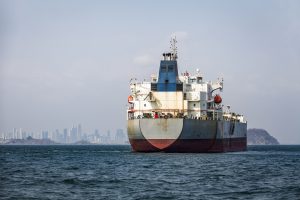
In Panama, watermakers are essential for a wide range of industries. From agriculture to tourism, the need for reliable and efficient water sources is ever-present. However, the country's geography and climate can make accessing clean drinking water in some areas difficult. Many companies have developed innovative solutions to create potable water from non-potable sources such as rivers or lakes to meet this demand. These technologies are helping Panama become more self-sufficient regarding its fresh water supply while also reducing dependence on imported bottled waters and other costly alternatives. By utilizing these cutting-edge solutions, businesses can ensure their operations remain successful even when traditional methods fail due to environmental conditions or resource scarcity.
Costa Rica
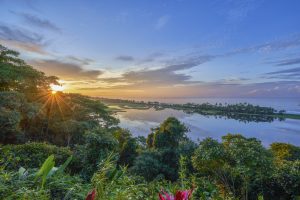
The demand for watermakers in Costa Rica is on the rise as the country struggles to meet its growing need for fresh, clean drinking water. With rising temperatures and an increasing population, more and more people are turning to watermakers as reliable, safe drinking water sources. By investing in a quality watermaker system, Costa Rican families can enjoy safe drinking water anytime they need it—without worrying about running out or spending too much money.
Haiti
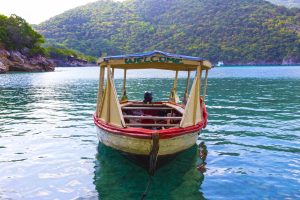
Haiti is a Caribbean nation facing an immense challenge in providing its citizens with clean, safe water. In rural areas of Haiti, access to clean drinking water can be limited and expensive due to a lack of infrastructure and resources. As a result, many Haitians rely on unsafe sources for their drinking water needs. Various organizations have looked into innovative solutions to address this critical need, such as developing effective and affordable watermakers for use in Haiti. These devices can convert saltwater or contaminated freshwater into potable drinking water quickly and efficiently without costly equipment or advanced knowledge of engineering principles. By utilizing these technologies, Haitian communities can access much-needed safe drinking water at a minimal cost.
Puerto Rico

Watermakers are essential in Puerto Rico, where clean drinking water can be scarce. As a tropical island in the Caribbean Sea, Puerto Rico experiences warm temperatures and high humidity year-round. This climate often leads to water shortages as rainwater evaporates quickly and reservoirs become depleted. For this reason, many people on the island rely on watermakers to provide them with safe drinking water for their households. Watermakers use reverse osmosis technology to filter out contaminants from seawater or other sources to be fit for human consumption.
Venezuela

In Venezuela, watermakers are vital for ensuring access to safe water. Clean drinking water can be challenging due to the country's tropical climate and frequent droughts. Watermakers use reverse osmosis technology to filter out contaminants from seawater or other sources to be fit for human consumption. This allows families in Venezuela to stay healthy and hydrated even during times of scarcity when municipal supplies may not be available. The availability of reliable and clean water is essential for any society, especially in places like Venezuela, where the environment can make finding such resources difficult.
Ecuador
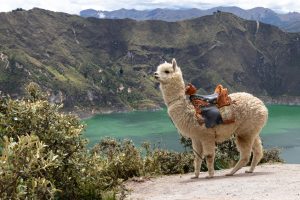
In Ecuador, access to clean water is a significant challenge. With over 70% of the population living in poverty and limited access to potable water sources, many people rely on contaminated or untreated water for their daily needs. To address this issue, many organizations have developed innovative solutions, such as the watermaker project in Ecuador. This project provides an affordable and sustainable solution that utilizes solar-powered desalination technology to produce safe drinking water from salty or brackish sources. The watermaker project has already successfully provided clean water to rural communities across Ecuador, helping improve health outcomes and quality of life for thousands of people.
Portugal
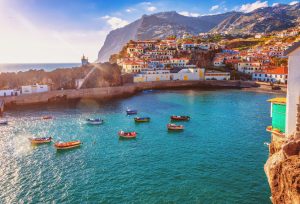
Finding a reliable watermaker in Portugal can be challenging. With the country's diverse climate and terrain, finding one suitable for your needs is crucial. Whether you are looking for a portable option or something more permanent, several options are available from Watermakers, Inc. and our online store. It is essential to research each model carefully before purchasing to ensure you have chosen the best product for your requirements. Call us for an overview of some of the most popular watermakers on the market today and tips for choosing the right one for your needs in Portugal.
Italy
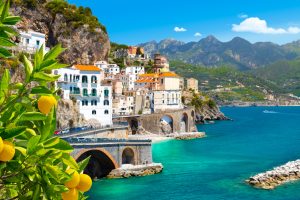
Access to clean and safe drinking water in Italy is becoming increasingly difficult due to climate change and population growth. In response, many Italians are investing in an RO watermarking system for their homes that can turn salt water or contaminated water into potable drinking water. This innovative solution has allowed Italian households to become more self-sufficient by providing them with an inexpensive way to produce their own supply of clean drinking water. Using these devices also reduces the strain on local governments' resources as they no longer have to provide their citizens large amounts of fresh drinking water. As such, this technology is quickly gaining popularity across Italy as people look for ways to improve their quality of life without relying too heavily on government infrastructure.
France
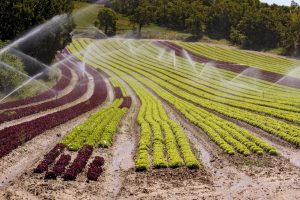
In France, agricultural production relies heavily on the availability of water. To meet this need, many farmers have turned to using a watermaker, a device that helps extract and conserve moisture from air for use in irrigation and other farming activities. Watermakers are particularly useful in areas where access to surface or groundwater is limited or unreliable due to climate change-related weather patterns. Watermakers have become increasingly popular among French farmers as they look for ways to ensure their crops receive adequate water while still being mindful of environmental sustainability practices. In addition, these devices can help reduce costs associated with traditional methods of obtaining and distributing water by cutting down on energy consumption and labor requirements. French farmers can continue producing high-quality products while minimizing their environmental impact by utilizing a more efficient system for accessing the necessary amount of water for successful crop production.
Netherlands

The Netherlands is a country famous for its flowers and its agricultural industry, but it is also home to an innovative technology that helps farmers maintain the quality of their crops: watermakers. Watermakers use reverse osmosis to remove salt from irrigation water, making it suitable for crop production. This technology has helped Dutch farmers become more efficient in their farming practices while ensuring they can provide the highest quality produce possible. With the help of these watermakers, Dutch agriculture continues to thrive despite changing weather conditions and other challenges facing farmers worldwide.
Astrakhan
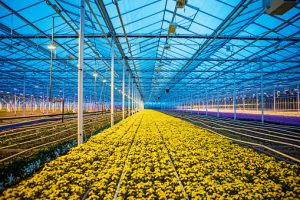
In remote areas of Astrakhan, watermakers are essential for agricultural development. These machines effectively obtain clean and safe drinking water from various sources, such as groundwater or surface water. Watermakers can also purify contaminated water containing bacteria, viruses, and other contaminants. These machines can improve crop yields in the area by providing farmers with access to reliable sources of clean drinking water for their crops. Additionally, installing a watermaker in rural areas can help reduce poverty levels by providing a sustainable source of income for local communities that rely on agriculture as their primary source of livelihood.
Kazakhstan

Kazakhstan is a large and diverse country in Central Asia, but it faces the same challenges as many other countries regarding accessing clean water. In remote areas of Kazakhstan, access to potable water can be difficult or even impossible due to various factors such as terrain, location, or lack of infrastructure. To help overcome this issue, many farmers are now turning to watermakers – machines that desalinate saltwater for irrigation and other agricultural purposes. Watermakers are becoming increasingly popular in Kazakhstan because they provide clean and affordable drinking water without relying on outside sources. This technology has allowed farming communities in Kazakhstan's rural areas access reliable freshwater sources for their crops and livestock.
Aktau
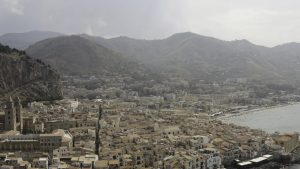
Aktau, is facing an acute water shortage due to the lack of natural sources. This has caused the government to look into alternative ways of providing water for agricultural and other uses. One such solution is the use of watermaking technology, which can be used to extract large amounts of fresh drinking water from the sea or brackish sources. This technology has been successfully used in many parts of the world and could prove invaluable for Aktau's future development.
United Arab Emirates
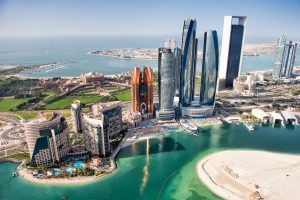
In the United Arab Emirates, watermakers are becoming increasingly important for meeting the country's growing demand for freshwater. With limited natural sources of fresh water and a rapidly expanding population, watermakers provide an essential solution to ensure that adequate safe drinking water supplies are available. Watermakers use reverse osmosis, nanofiltration, ultrafiltration, and more to remove impurities from brackish or seawater. They can also purify wastewater for reuse in agriculture or industry without compromising safety standards. By investing in advanced technologies like these, the UAE can protect its citizens’ health while conserving precious resources and protecting its environment.
Oman
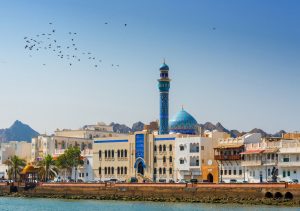
Oman is a country in the Middle East which faces many challenges when it comes to providing clean and safe drinking water for its population. One solution that has been gaining traction in recent years is using watermakers, or desalination plants, as an alternative source of fresh water. Watermakers provide a reliable and cost-effective way to produce potable water from seawater using reverse osmosis technology, making them ideal for arid countries like Oman.
Monrovia, Liberia
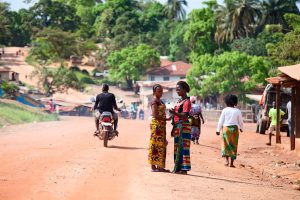
Monrovia, Liberia is in desperate need of watermakers. With limited access to clean drinking water and the lack of infrastructure for treating wastewater, Monrovians are facing a growing crisis regarding their basic needs. Every day, people must search for ways to get enough water for themselves and their families. This struggle has become especially dire during this pandemic as many resources have been diverted from providing essential services like safe drinking water. To help alleviate this issue, there is an urgent need for more efficient and affordable ways to produce potable water in Monrovia. Watermakers offer a viable solution by providing safe and reliable drinking water sources while reducing the burden on strained local resources.
Luanda Angola
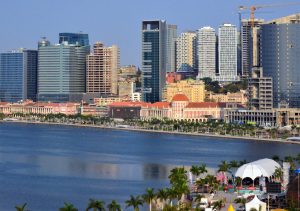
In the bustling city of Luanda, Angola, access to clean water is a critical issue. With an ever-growing population and limited natural resources, providing safe drinking water for residents has become increasingly difficult. Fortunately, there is a solution that can help address this problem: Watermakers. These machines have the potential to provide clean drinking water for hundreds of thousands of people in Luanda and beyond by desalinating seawater or brackish groundwater and converting it into drinkable fresh water. By investing in these innovative technologies, we can ensure everyone in Luanda has access to the freshwater needed to live healthy lives.
Taiwan
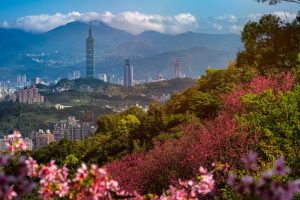
As the population of Taiwan continues to grow and water resources become more scarce, many people are turning to watermakers as reliable sources of clean drinking water. Watermakers can provide an affordable solution for homes and businesses in Taiwan by using advanced filtration technology to turn salt or brackish water into fresh, potable drinking water. These machines also help reduce plastic waste by eliminating the need for bottled beverages. With their easy-to-use design and low maintenance requirements, these devices make it easier than ever for people in Taiwan to access safe drinking water on demand.
Bahamas
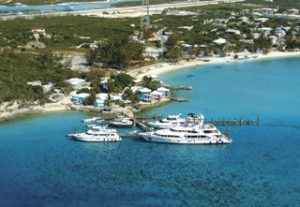
In the Bahamas, watermakers are essential for providing clean drinking water. With abundant saltwater and limited freshwater sources, residents and visitors rely heavily on these machines to make potable water. Watermakers work by removing salts and other impurities from seawater or brackish groundwater to produce purified drinking water. In addition to having enough fresh drinking water for daily needs, they can also provide a reliable source of irrigation for agricultural purposes. As such, they play a vital role in sustaining life in the Bahamas.
Curaçao
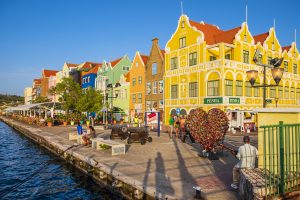
Curaçao is an island nation situated off the coast of Venezuela in the Caribbean Sea. This stunning paradise has become a popular tourist destination but faces a unique challenge: access to clean drinking water. To address this problem, many locals and businesses have turned to watermakers in Curaçao as a viable solution. Watermakers are machines that use reverse osmosis technology to purify saltwater or brackish water into potable drinking water. They provide an efficient way for people and businesses on the island to access clean, safe drinking water without relying on expensive bottled sources or other costly alternatives. With their easy installation and low cost of operation, watermakers have quickly become one of the most important innovations for those living or visiting Curaçao.
British Virgin Islands
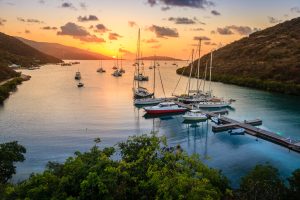
Jost Van Dyke, BVI
Beef Island, BVI
Access to clean and safe drinking water is a challenge in the British Virgin Islands. This is largely due to the need for more infrastructure for providing potable water on many islands in the region. To address this problem, many people have turned to watermakers as an effective solution. Watermakers are machines that desalinate seawater into drinkable freshwater, making them invaluable for island dwellers who need reliable access to fresh drinking water. Their high efficiency and low maintenance requirements provide a cost-effective way of obtaining freshwater in remote locations with limited resources. By investing in a quality watermaker system, those living in the British Virgin Islands can ensure they have safe and reliable access to clean drinking water at all times.
US Virgin Islands
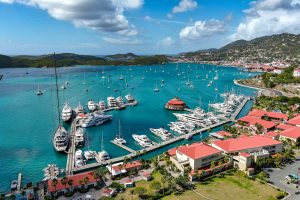
In the US Virgin Islands, watermakers are essential for ensuring a reliable supply of clean drinking water. With limited access to freshwater sources, households and businesses in the USVI rely heavily on these devices to meet their daily hydration needs. Watermakers offer an affordable way to produce pure drinking water from available resources, such as sea or brackish water, without investing in costly desalination systems. However, understanding how these machines work is critical to ensuring they remain operational and safe.
Belize
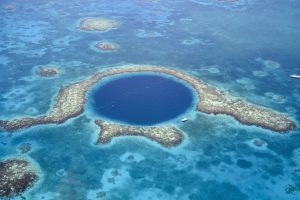
For those living in Belize, having access to clean drinking water is a necessity. Unfortunately, the country's groundwater sources are often contaminated and not suitable for consumption. As such, many people rely on watermakers in order to have safe and drinkable water. Watermakers come in all shapes and sizes but their primary purpose is to filter out harmful contaminants from the source water so that it can be safely consumed by humans or used for other purposes. Watermakers also provide an additional layer of protection against diseases like cholera and typhoid which are spread through contaminated drinking water. With access to high-quality drinking water becoming increasingly important across Belize, investing in a reliable and effective watermaker could be the difference between life and death for many residents of this beautiful country.
Galápagos Islands
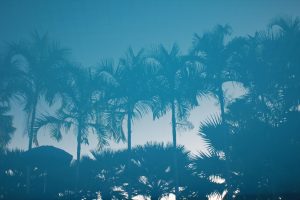
The Galapagos Islands are known for their unique and exotic wildlife, with many species that can’t be found anywhere else in the world. But what many people don’t realize is that access to clean drinking water has become increasingly difficult in this region. As a result, the need for reliable watermakers is becoming more and more important.
